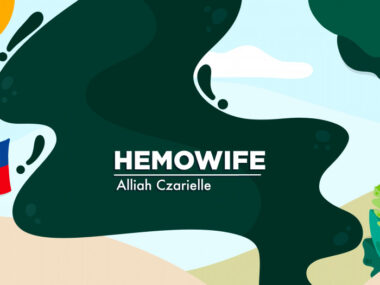My husband’s efforts to understand the health issues of others
Jared's perspective was shaped by growing up with hemophilia
Written by |

As someone living with hemophilia B and epilepsy, my husband, Jared, has faced numerous health challenges throughout his life. From medical tests to hospitalizations, he’s endured his fair share of pain and discomfort. So when I recently confided in him about an unsettling taste lingering in my mouth for several days, it’s understandable that he may not have shared the same level of concern.
Living with a chronic condition can sometimes create a barrier when it comes to understanding other people’s health issues. Jared, like many people with chronic illness, may find it difficult to empathize with problems he perceives as less severe than his own. It’s not that he doesn’t care — far from it. Rather, his experiences have shaped his perspective, making it challenging for him to relate to issues that don’t directly align with his own health struggles.
For me, grappling with this unsettling sensation in my mouth has been more than just a physical discomfort. It’s triggered underlying anxieties, exacerbated by past experiences and a heightened awareness of my own health. Losing my mother to lymphoma in 2018 had a profound impact on me, intensifying my health anxiety. It hits me even harder now that I am a mother myself. So, when faced with a mysterious symptom like this persistent taste, it’s hard not to let my mind wander to worst-case scenarios.
Yet, I understand Jared’s perspective. Expressing excessive concern for every ache and pain I experience wouldn’t be healthy for either of us. While I crave validation and reassurance, I also recognize the importance of striking a balance. Too much attention to unfamiliar sensations could easily fuel my hypochondriac tendencies, plunging me into a spiral of worry and fear.
Bridging the gap
Communication is key in navigating these moments of disconnect. By openly sharing our thoughts and feelings, Jared and I can bridge the gap between our differing perspectives. While he may not fully grasp the gravity of my concerns, his support and understanding mean the world to me. In turn, I strive to acknowledge his own struggles and offer the same level of empathy and compassion.
Living with chronic illness has taught us to extend grace to each other during struggles. Despite our differing experiences, we bridge the gap through mutual respect and understanding. As we navigate hemophilia, seizures, and my own mental health conditions, we rely on each other for support and guidance.
Jared may not always be capable of empathizing fully with “smaller” aches and pains, or conditions that are merely temporary. But I appreciate that he still tries. In the end, it’s not about who understands every ache and pain perfectly. It’s about standing by each other through the highs and lows, offering unwavering support and unconditional love. And in that, Jared and I find solace, knowing that we’re in this journey together, no matter what challenges may come our way.
Note: Hemophilia News Today is strictly a news and information website about the disease. It does not provide medical advice, diagnosis, or treatment. This content is not intended to be a substitute for professional medical advice, diagnosis, or treatment. Always seek the advice of your physician or another qualified health provider with any questions you may have regarding a medical condition. Never disregard professional medical advice or delay in seeking it because of something you have read on this website. The opinions expressed in this column are not those of Hemophilia News Today or its parent company, Bionews, and are intended to spark discussion about issues pertaining to hemophilia.



Leave a comment
Fill in the required fields to post. Your email address will not be published.